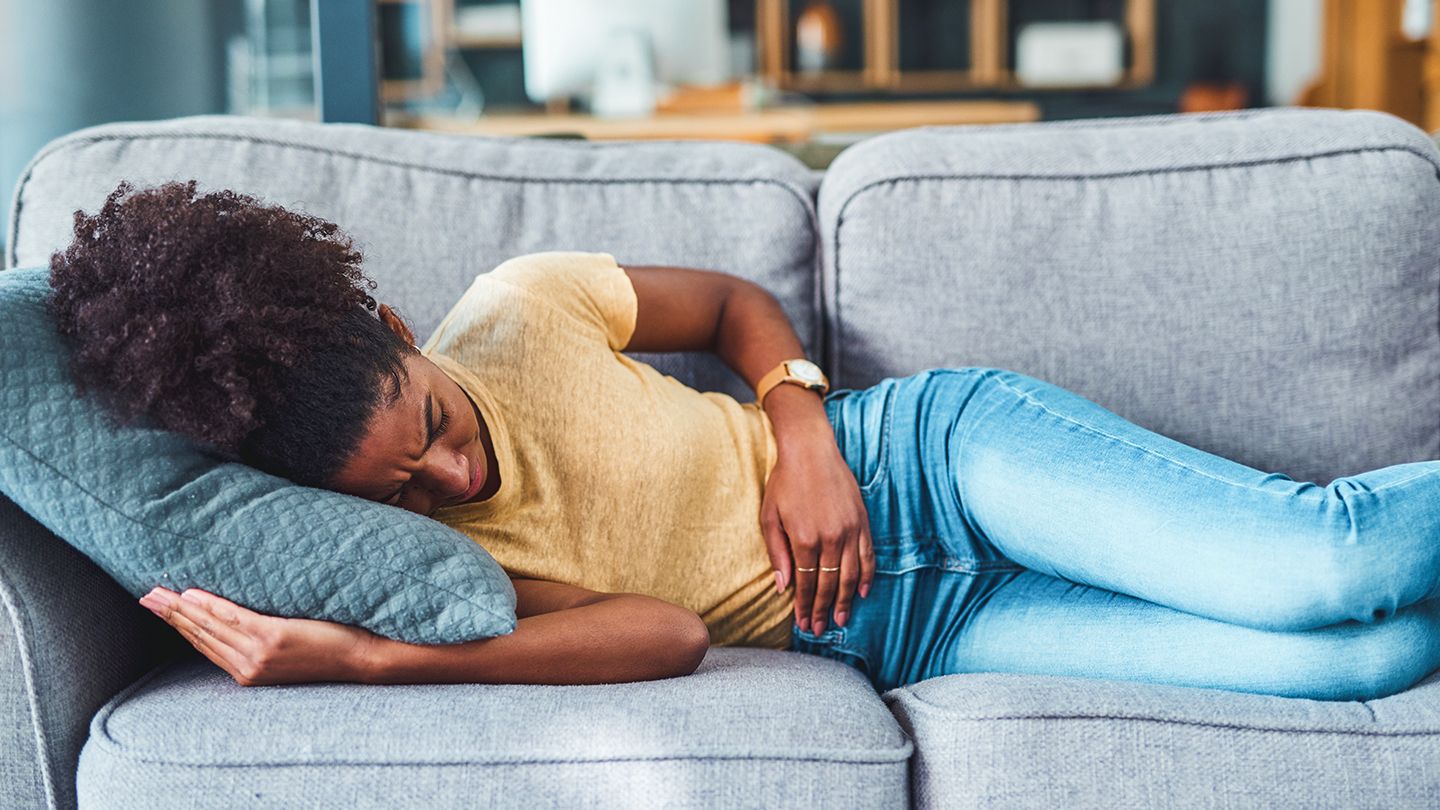Abdominal pain is one of the most common problems for people with ulcerative colitis (UC). Your treatment plan should give you long-term relief, but you may still experience the occasional bout of stomach cramps and pain.
“An inflamed colon is unable to process and absorb water efficiently,” says Roopa Vemulapalli, MD, a gastroenterologist and associate professor in the division of digestive and liver diseases at the University of Texas Southwestern Medical Center in Dallas. “It also can go into frequent spasms.” This can happen even when the colon is not inflamed.
If you’re experiencing stomach cramps with your UC, use these tips to alleviate the pain.
1. Add Acetaminophen
2. Avoid Your Personal Trigger Foods
3. Take a Gas-Relieving Product
4. Use a Warm Water Bottle
Heat helps relieve muscle pain, which can be caused by straining your bowels on the toilet, Naik says. To ease cramps, try holding a warm water bottle against your belly; just make sure it’s not hot enough to burn or scald your skin. You can also wrap it in a towel until it cools off.
5. Try Yoga
Practicing yoga can be another way to ease UC stomach cramps and abdominal pain. One study found that people with IBD who added one hour of daily yoga to their treatment plan felt less abdominal pain after eight weeks than people who didn’t do yoga.
Another study concluded that people with UC who did weekly 90-minute sessions of yoga for 12 weeks reported having less disease activity — and fewer flare-ups — than those who tried other techniques, such as reading self-care books.
6. Be on the Lookout for Signs of Depression and Anxiety
- Feeling sad, irritable, or hopeless
- A loss of interest in people or activities you once enjoyed
- Decreased energy or increased fatigue and tiredness
- A sudden change in appetite leading to unintentional weight gain or loss
- Altered sleeping patterns
- Difficulty thinking or concentrating
- Thoughts of death or suicide
- Feeling restless, on edge, or irritable
- Problems concentrating
- Feelings of panic, dread, or fear
- Physical symptoms like muscle tension, shortness of breath, and heart palpitations
- Difficulty controlling worried feelings
- Sleep problems and fatigue
If you think you may have depression or anxiety, talk to your doctor, who may refer you to a psychologist or psychiatrist.
7. Stick to Your Treatment Plan
Make sure you’re taking your medication exactly as prescribed, Vemulapalli says. If your symptoms, such as stomach pain or cramps, are frequently flaring up despite your drug regimen, though, call your doctor. They might have you try a new treatment for your UC or prescribe a different dosage.
“A well-healed colon is a happy colon,” Vemulapalli says.
The Takeaway
- Abdominal pain and stomach cramps are extremely common symptoms of ulcerative colitis (UC) that can affect quality of life, but there are ways to find relief.
- Taking over-the-counter medicines like acetaminophen and simethicone, avoiding trigger foods, and practicing yoga to relieve stress are effective ways to reduce UC stomach cramps.
- Talk to your doctor if you experience frequent stomach pain or cramping despite following your treatment plan.
Read the full article here




